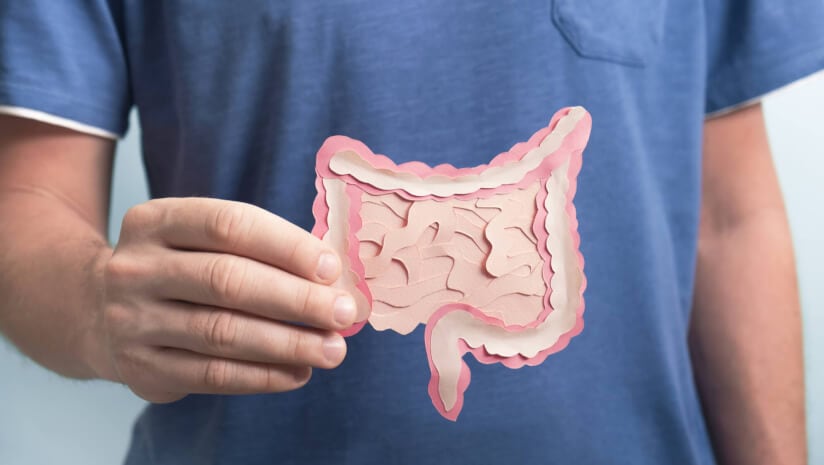This study aimed to investigate the relationship between probiotic supplementation in early childhood (between 0 and 3 years of age) and overweight and obesity in preschoolers (between three and seven years).
The analysis was based on a cross-sectional survey conducted in 2022, which involved 36,220 preschool children in the Longhua District of Shenzhen, China.
The mothers of these children were asked to complete a structured questionnaire on their socio-demographic details and probiotic supplementation of their kids.
After adjusting for potential confounders, the analysis showed that probiotic supplementation in early childhood was associated with a lower likelihood of overweight and obesity during preschool, compared to children without probiotic supplementation.
Additionally, children who consumed a probiotic product containing Bifidobacterium longum subsp. infantis R0033, Bifidobacterium bifidum R0071, and Lactobacillus helveticus R0052 were found to have a lower risk of being overweight or obese.
Further stratified analyses identified a significant association with a lower likelihood of obesity only in girls, but no meaningful association was observed in boys.
“We observed a gender difference in the protective effect of probiotic supplementation against childhood obesity, with girls showing a lower risk of obesity compared to boys.
“At the same time, exploratory research indicated a potentially stronger association between probiotic supplementation and reduced obesity risk among children born full-term or with normal birth weight, though these preliminary findings warrant further validation in adequately powered studies,” the authors wrote.
Furthermore, it was discovered that probiotic supplementation, particularly when the cumulative duration was less than one month for overweight and within six months for obesity, was linked to a lower prevalence of these conditions respectively.
“This may be because the duration required to reduce the risk of overweight is shorter than that of obesity. Individuals who are overweight exhibit better metabolic adaptability and behavioural plasticity compared to those with obesity, which may allow for a shorter intervention period to achieve beneficial effects.
“However, this also raises an important question worth considering: why would a shorter duration be more effective than a longer one? One possible explanation is that the sample sizes in the longer-duration groups may be smaller, resulting in insufficient statistical power to detect the effect size and significance. Future studies with larger sample sizes are needed to further investigate this finding.”
Shaping a healthy gut microbiota
Childhood obesity is recognised as a multifactorial metabolic disease, with the prevalence among Chinese children estimated at 7.77%.
Due to the rising prevalence of childhood obesity globally, researchers are exploring beyond conventional treatment options, such as dietary control and physical exercise.
For instance, the microbiome is being extensively studied as a treatment approach. Among them, prebiotics and probiotics are promising microbiome-based strategies for the prevention and management of obesity in early childhood and preschool years.
While most studies support the use of probiotics in the first year of early childhood to intervene in obesity, there is less research supporting it in the following two years.
The first 1,000 days of life (from conception to two years after birth) are considered a crucial period for gut microbiota’s development, and is a window of opportunity for shaping a healthy gut microbiota.
Certain genera, such as Bifidobacterium, Lactobacillus, and Bacteroides, are widely known for their beneficial roles in modulating host metabolism, immunity, and neurodevelopment.
“In faecal samples from healthy individuals, the typical concentration of these species ranges from 107 to 1011 CFU/g, and maintaining an appropriate abundance within this range is critical for their functional efficacy. Disruption of this balance during early life may increase the risk of metabolic disorders, including obesity.”
Before the introduction of complementary foods (0 to 6 months), the infant diet — mainly comprising breast milk or formula milk — results in relatively limited types and quantities of gut microbiota, with Bifidobacterium being the predominant species.
The diversity of gut microbiota increases significantly as children start to consume complementary foods, and the microbiota structure becomes more complex and gradually approaches that of adults.
Studies have found that after the introduction of complementary foods, more diverse species of Lactobacillus and Bacteroides appear in the intestine.
“During this developmental stage, early alterations in the gut microbiota may not only influence neurophysiological processes through the gut-brain axis, potentially regulating the production and modulation of neurotransmitters within the enteric nervous system and affecting children’s neurodevelopment, but also impact the development of childhood obesity by modulating nutrient absorption and metabolism.”
Findings of the present study are also consistent with the mechanisms by which probiotics influence obesity.
“Probiotics are microbial agents with immunomodulatory, anti-inflammatory, nutritional and anti-microbial effects, and are thought to improve gut health by promoting the growth of beneficial microorganisms. Probiotics are able to reduce intestinal endotoxin levels by stabilising permeability of the intestinal barrier and attenuating low-grade inflammation.
“In addition, probiotics may stimulate non-obesogenic changes in the intestinal environment by altering the fermentation process of dietary polysaccharides, which in turn affects energy harvesting and fat deposition.
“During critical periods of life, probiotic interventions may protect individuals from premature weight gain through both immunomodulatory pathways and energy-harvesting mechanisms, and this effect is usually limited to the first few years of life, when the gut microbial composition and immune response are still being formed.”
Source: Frontiers in Nutrition
https://doi.org/10.3389/fnut.2025.1597894
“Early supplement of probiotics reduces the risk of obesity among preschool children: a real-world observational study”
Authors: Maolin Zhang, et al





